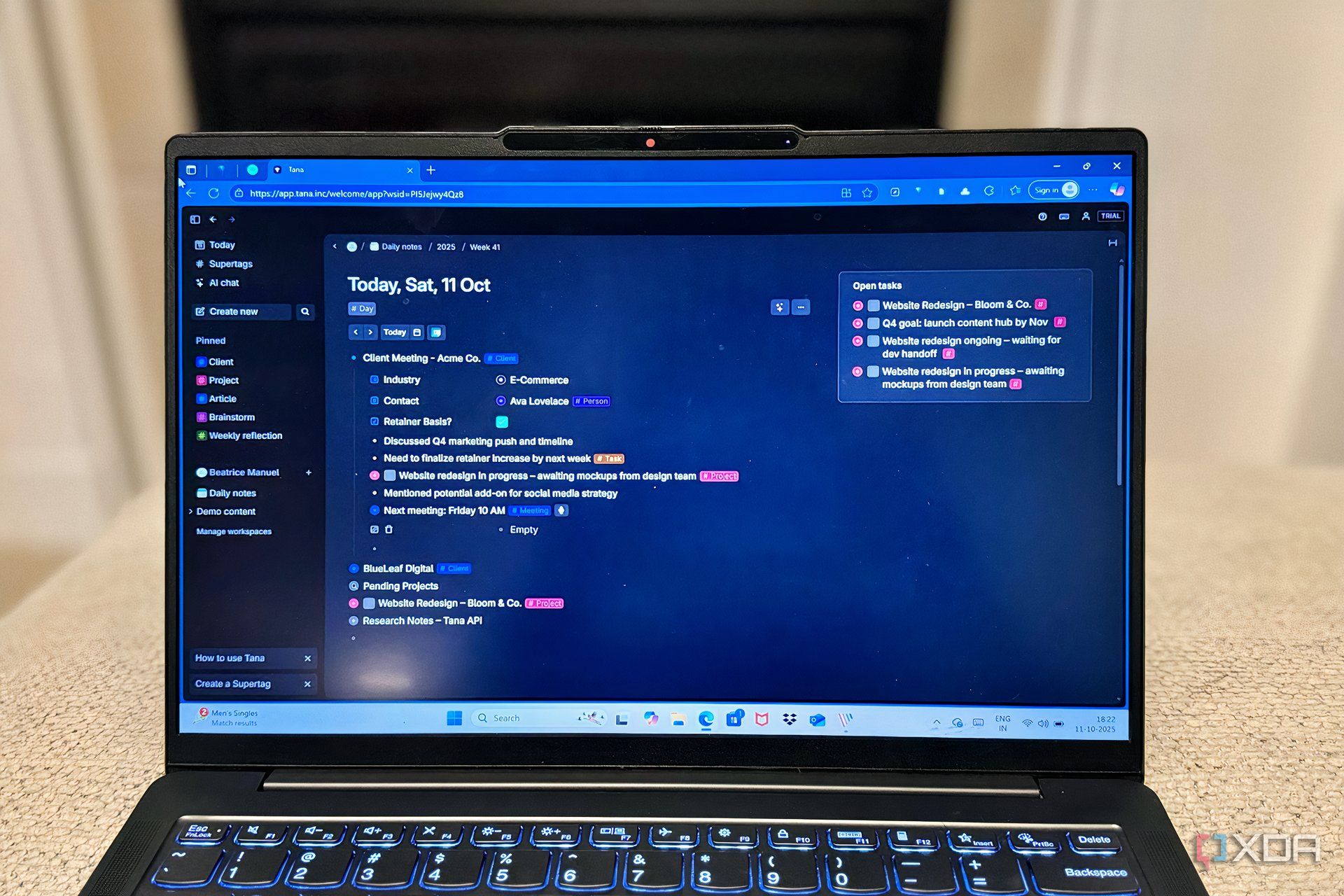Top Stories
Tana’s Supertags Revolutionize Productivity Apps with Flexibility

UPDATE: Tana’s innovative supertag system is transforming the productivity software landscape, offering a groundbreaking solution for knowledge workers. This development is set to disrupt the conventional choices between rigid databases like Notion and freeform tools such as Obsidian.
For years, productivity enthusiasts have struggled with the dilemma of capturing ideas efficiently while maintaining organization. Tana’s supertag system eliminates this friction, enabling users to write freely and add structure retroactively, marking a significant evolution in how we manage information.
Tana allows users to create an outline and later apply metadata without interrupting their thought process. This approach addresses a common challenge: traditional apps require upfront decisions that can stifle creativity. With Tana, users can tag any bullet point, enhancing their workflow without the need for extensive setup.
Latest Reports reveal that Tana is already making waves among consultants who manage multiple clients. By using a simple #client supertag, users can input essential fields like industry and project status during client calls without losing their flow. This seamless integration allows for better organization and retrieval of information without the cumbersome navigation of multiple database layers, as seen in Notion.
During project planning, users can create a single node for complex tasks, such as “Website Redesign – XYZ Client Name,” and tag components as they come to mind. This flexibility means they can later organize their thoughts into searchable categories, allowing structure to grow naturally alongside their work.
Moreover, Tana is changing the game for spaced repetition learning. Unlike dedicated apps like Anki, which require pre-commitment to memorization, Tana lets users tag key concepts with a #learn supertag in real time. This means important information remains contextually relevant, enabling users to review and update their learning seamlessly.
Why This Matters NOW: Tana’s approach highlights a critical shift in productivity tools, suggesting that the future lies in blending the freeform nature of outliners with the structured capabilities of databases. Experts believe that traditional software must adapt to this “write first, structure later” philosophy to remain relevant in a rapidly evolving market.
As Tana gains traction, it challenges established players like Notion and Obsidian to rethink their offerings. Users increasingly prefer systems that do not impose rigid structures, allowing thoughts to flow freely without the fear of losing them to complex setups.
Next Steps: Watch for Tana’s user base to expand as more professionals seek tools that cater to their need for both flexibility and organization. The momentum behind Tana could prompt competitors to innovate, potentially leading to a major shift in how productivity applications are designed and utilized.
This development is not just a technological advancement; it reflects a growing understanding of how knowledge workers operate. By making metadata an integral part of the writing process, Tana is paving the way for a new era of productivity software that prioritizes user experience and adaptability.
Stay tuned for more updates on this evolving story as Tana continues to reshape the productivity landscape.
-

 Science2 months ago
Science2 months agoUniversity of Hawaiʻi Joins $25.6M AI Project to Monitor Disasters
-

 Business2 months ago
Business2 months agoForeign Inflows into Japan Stocks Surge to ¥1.34 Trillion
-

 Top Stories2 months ago
Top Stories2 months agoBOYNEXTDOOR’s Jaehyun Faces Backlash Amid BTS-TWICE Controversy
-

 World2 months ago
World2 months agoBoeing’s Merger with McDonnell Douglas: A Strategic Move Explained
-

 Top Stories2 months ago
Top Stories2 months agoCarson Wentz Out for Season After Shoulder Surgery: Urgent Update
-

 Entertainment2 months ago
Entertainment2 months agoSydney Sweeney Embraces Body Positivity Amid Hollywood Challenges
-

 Top Stories2 months ago
Top Stories2 months agoMarc Buoniconti’s Legacy: 40 Years Later, Lives Transformed
-

 Lifestyle2 months ago
Lifestyle2 months agoKelsea Ballerini Launches ‘Burn the Baggage’ Candle with Ranger Station
-

 Health2 months ago
Health2 months agoInnovative Surgery Restores Confidence for Breast Cancer Patients
-

 Sports2 months ago
Sports2 months agoSteve Kerr Supports Jonathan Kuminga After Ejection in Preseason Game
-

 Entertainment2 months ago
Entertainment2 months agoZoe Saldana Advocates for James Cameron’s Avatar Documentary
-

 Science2 months ago
Science2 months agoChicago’s Viral ‘Rat Hole’ Likely Created by Squirrel, Study Reveals









